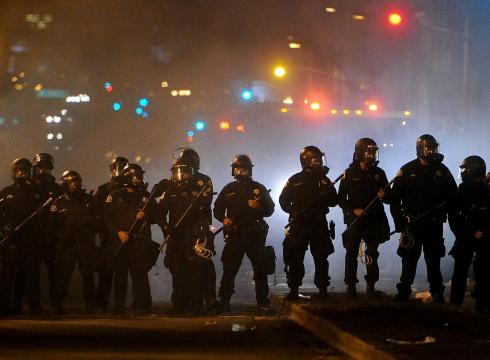So I was a party over the weekend. Some of us were on the porch sucking down Mojitos and talking money. Everyone had something to say about the Taper. It's good. It's bad, It's too soon. It's too late - the usual blather. I tend to dwell on the dark side of things, so chimed in with, "I'm afraid of the Taper."
Later, I was eating some food and a little girl comes up to me. She's maybe 8, carrying a tablet. She says, "Don't be afraid of the tapir. It's not scary". She shows me this picture:
The girl's confusion on what Taper really means, and why I should be afraid of it, is no different from everyone else. No one really understands the implications. The markets, the entire FRB (especially Bernanke), the Press and most citizens have no clue what The Taper means. My thoughts:
- The word Taper has a decidedly negative connotations attached to it. It's Bad because it implies that all asset values have to come down. This may, or may not prove to be true over time, but it's most certainly the case today. Taper Talk is bad for money-men.
Bernanke has created the Taper. Yesterday he made it clear that the word Taper will be a matter of daily discussion for at least another 12 months (I think it will be longer than that). In my book, this does not bode well for market psychology for an extended period.
- The shock value of QE1 was helpful in stabilizing a collapsing system in 2009. But QE3 was/is an overdose of an emergency tonic. The Fed made a mistake when it committed to an $85Bn monthly buy-in. Bernanke created a monetary VLCC (very large crude carrier). The SS Bernanke is laden with crude and going full speed ahead at this point. It will take a minimum of twelve months just to slow it down - it will take three years to turn the ship in the other direction. What better evidence could you ask for to prove the point that the USA is addicted to printing?
- Bernanke's QE exit strategy is flawed. He thinks that if he drags out the process of winding down QE it will minimize the consequences. I see it differently - the longer this takes, the more pain it will cause. If the Fed had announced that it was ending the $45Bn month T-Bond buys over a short period of time (three months) AND at the same time confirmed that the MBS purchases of $40BN a month would continue for "an extended period of time", then the issue of Taper would be in the rear-view mirror rather than in the miles ahead.
I think the markets (and therefore the economy) would have been better off if Bernanke had acted decisively and trimmed down QE3 with a bang. Yes, there would have been a market correction in this scenario, but money men like certainty. Interest rates would have adjusted higher, but with ZIRP and low inflation, the bond market would not have run out of control. If you have to get something cut out, it's better to get it over and done with. Ben is standing over the patient with a scalpel saying. "this won't hurt a bit". That might be the case, but we have to wait a half-year before the scalpel actual falls.
- I see the Taper Affair as a failure of Bernanke's communication policy. He's been vaguely hinting and leaking information about ending QE for months. He should have kept his cards hidden, and then acted. Contrast Bernanke with Volker. When Volker had to make hard choices - he did it. He surprised the markets again and again. Bernanke is trying to sugar coat a bitter pill. Dragging this out is a bad hand to play.
- Bernanke has ZERO credibility when it comes to Taper Talk. That's a fact given that Old Ben will not be around to actually watch over the unwind of QE - he will be back in Princeton and making big bucks on the lecture tour when this dime drops. The "Gradual Taper" will not start until the fall; the talked about end date of "a year from now, maybe" is well into the new Fed Head's job. The bulk of the slowdown in monthly QE will occur after Ben gets his gold watch.
This obvious conflict will fray at the markets. "Who's it going to be?" "What will he or she do?" are questions that will hang in the air. Bernanke has to be aware of this. One option that he must be considering is an early appointment of his replacement.
This must happen in the next five months. It would be better to get the transition resolved sooner rather than have it add to the uncertainties. I don't think the next Fed Chairman will have an easy ride in Senate conformation hearings; if left until the end of the year, there is the potential that we go for a period of time with no one running the show. That would be a big mistake.
- If global markets continue to roil over the Taper, Ben will have to consider a change of strategy. Accelerating the transition to a new face at the Fed is not out of the question. If Tim Geithner gets the nod for the job, I will personally march on Washington in protest.
Copyright © Bruce Krasting













